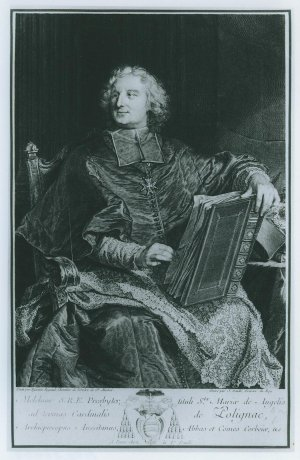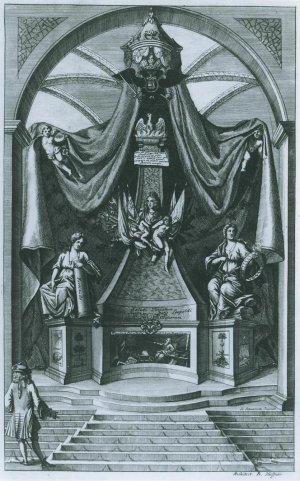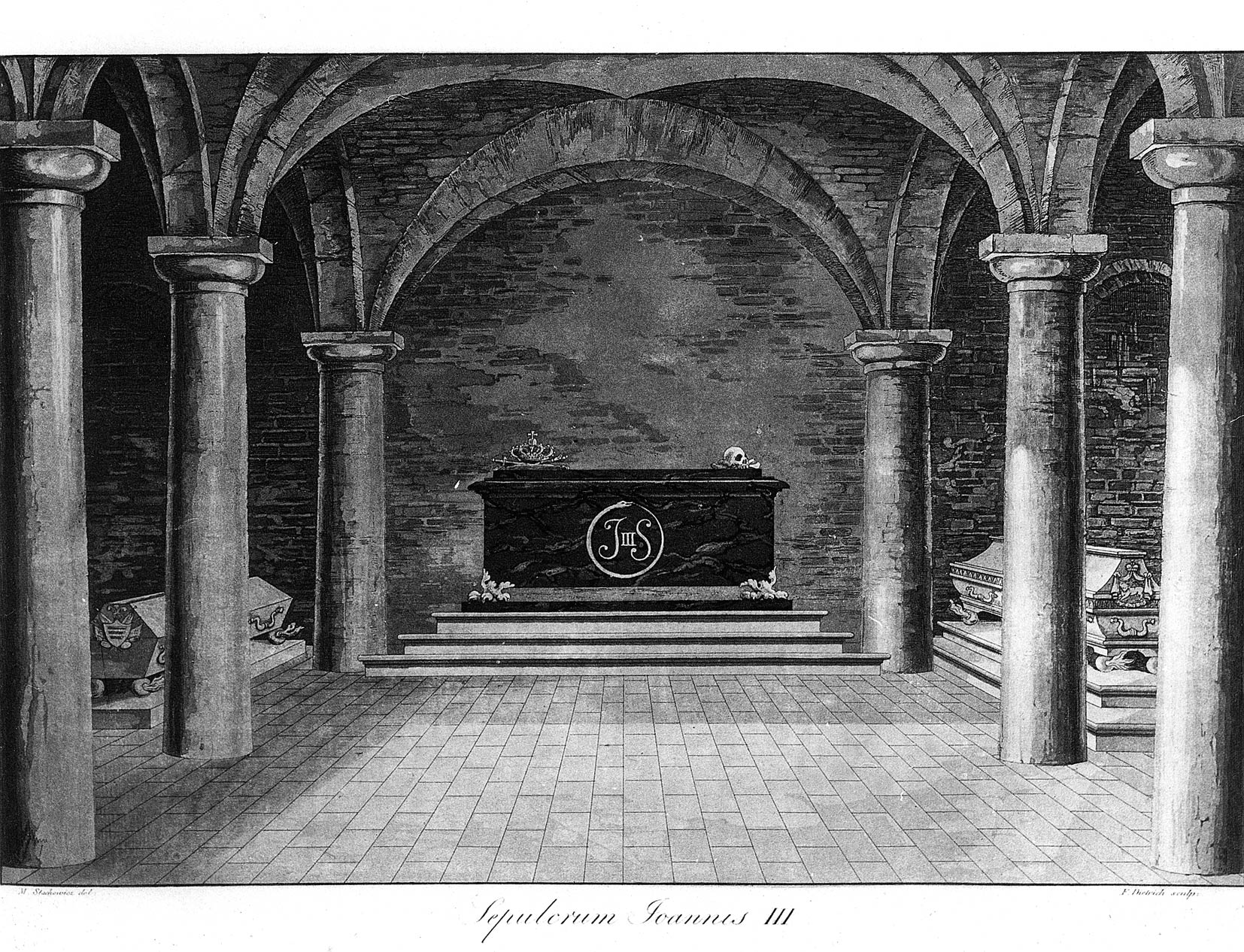Melchior de Polignac, the French Ambassador to Poland
Born on 11 October 1661, Melchior de Polignac was invited to Rome by Cardinal de Bouillon in 1689.
In 1693 in turn he was sent to Poland. Memoirist Philippe Dupont gives the following account of Polignac’s arrival and stay at the court of Jan III Sobieski, “Louis XIV appointed his ambassador to Poland abbot de Polignac, currently a cardinal. The newly nominated ambassador set off on a journey of high risk in the time of ongoing war waged by France against all nations. The ship transporting his servants, silverware and furniture was storm-tossed while crossing the Baltic Sea and was forced to moor in Rugenwalde. When Berlin found out what had happened, the seaport governor was immediately ordered to arrest all the shipment and to escort it to the court. When the news of the arrest reached the Polish King, he sent a complaint to the King of Prussia and dealt with the problem, causing the footmen to be released and the belongings returned. The tableware for paid for with cash.”
Sobieski quickly realized the cardinal’s talents and profound knowledge on various matters. Indeed, his knowledge equalled that of the most eminent minds. Polignac expressed himself in an eloquent way, be it in Latin, French or Italian, and this ability highly pleased the king. His Latin was particularly fluent, perhaps because the French tend to write in Latin better than they speak. Soon after, the king introduced Polignac to his favourite Jesuit, Father Vota. “It seemed that conversations held by the two gentlemen had a soothing effect on the monarch’s ailments, as on such occasions he hardly ever complained of anything, especially when the interlocutors disagreed on a topic suggested by the king. The latter would then side with either one or the other of the discussants, taking great pleasure in stirring their discussion and making it last longer.” Madame de Sevigné also praised Polignac’s eloquence when observing that, “He is one of the men of the world whose mind appeals to me most. He knows everything, talks about everything, has all the sweetness, vividness and kindness that one can only wish for.”
Following Jan III Sobieski’s death, Louis XIV charged Polignac with the task of bringing about Prince de Conti’s election as the new King of Poland. When his mission failed, Polignac returned to France and was forced to live for four years in exile in his abbey located in Bon-Port. Being an excellent Latinist, he spent the period in exile on literary activities by composing a poem in Latin of roughly ten thousand verses, entitled Anti-Lucretius and published in 1745. In Voltaire’s opinion, Polignac was “the best poet one might be when writing in a dead language. (...) He proved that it is easier to compose poems in Latin than in French.”
Polignac was sent to Rome in 1706, in the time when mutual relations between Louis XIV and the Pope were very tense. He then partook in the negotiations of the Treaty of Utrecht (1713). In 1713 Polignac was nominated cardinal, but already in 1716 he was exiled to Florence for his participation in the Cellamare Conspiracy aimed against the Regent of France. In 1726 he was nominated Archbishop of Auch. In 1724–1732 Polignac held the post of the French ambassador to Rome. He took part in the papal conclave which elected Pope Benedict XIV. While in Rome, he realised his passion for science by conducting archaeological excavations.
Apart from his ecclesiastical and diplomatic career, Polignac was also a successful scholar. In 1704 he succeeded Bossuet in the French Academy, and in 1711 he became a member of the Academy of Sciences.
Polignac died on 20 November 1741.



